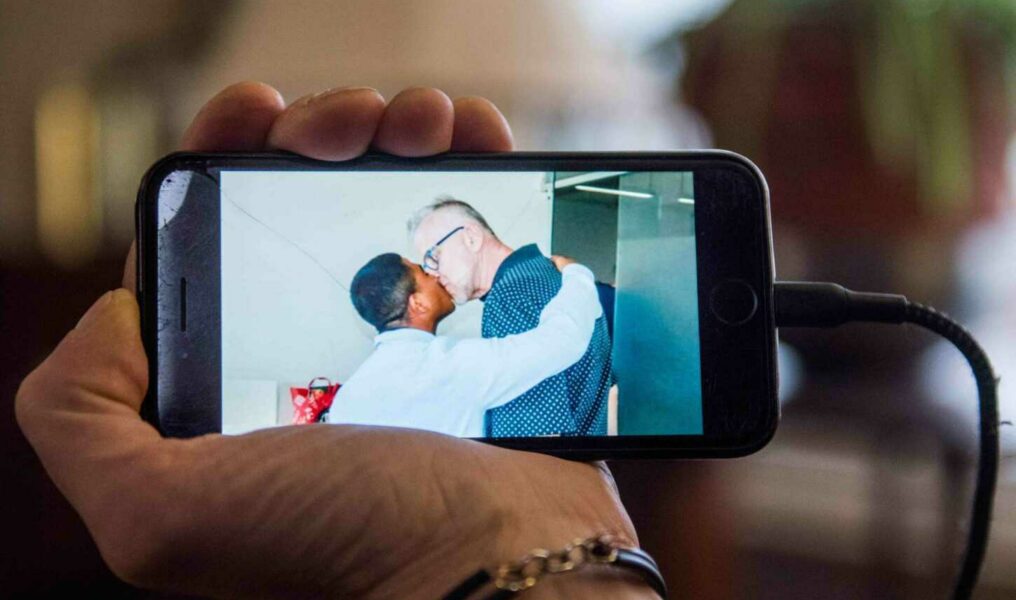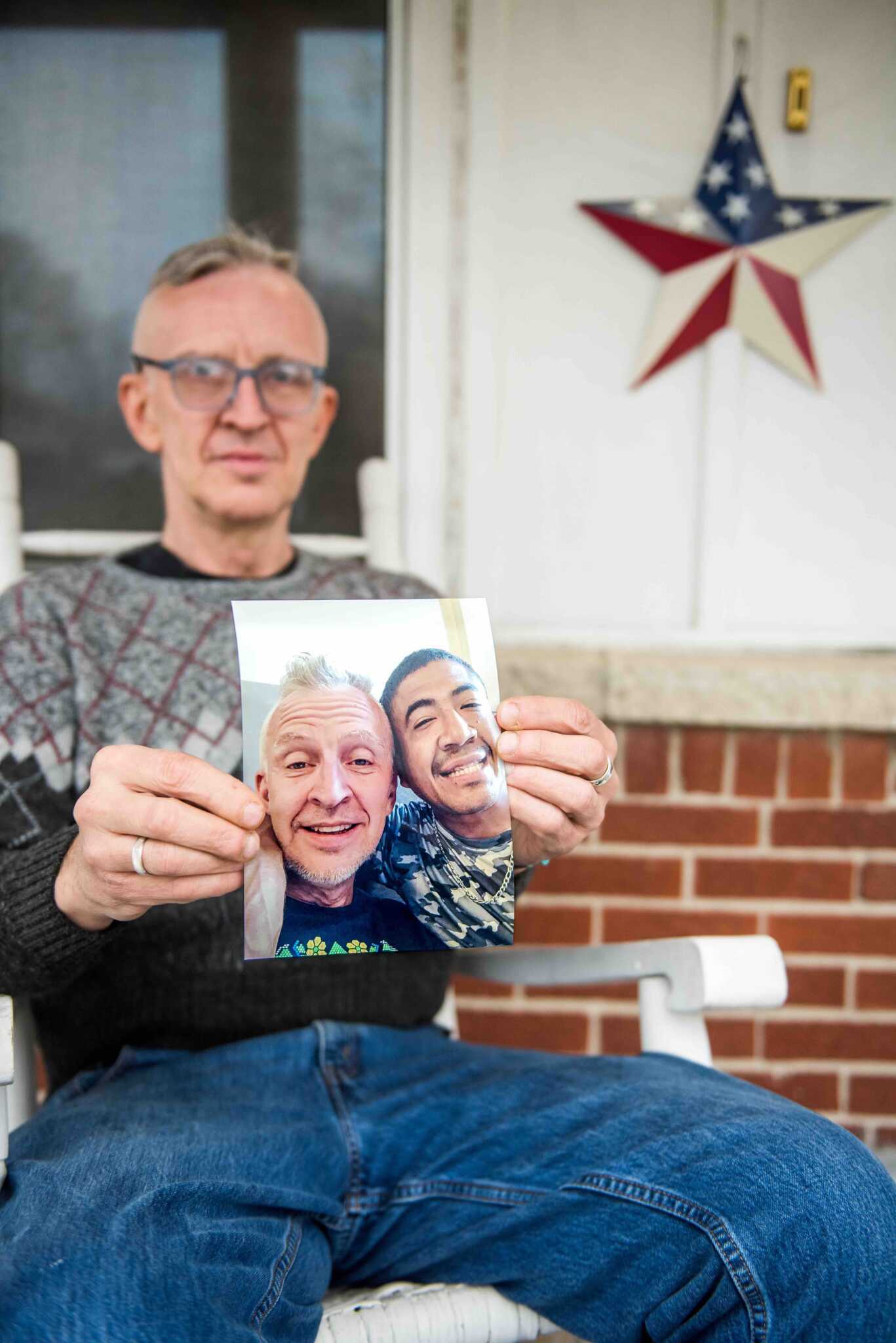This Michigan Man Just Wants to Live With His Husband. The U.S. Government Has Kept Them Apart for More Than 10 Years.

Their relationship has survived two-and-a-half presidencies (so far), roughly 12 years and a separation of nearly 2,000 miles. Now, all Tim Hunter and Hugo Gallardo Petatan want is to start their married life together.But they can’t do that yet. And even if they do everything exactly right, and everything goes exactly right, Hugo won’t be able to leave Mexico to rejoin Tim here in Michigan for at least another two years.At its heart, Tim and Hugo’s story isn’t just about anti-LGBTQ+ discrimination; it’s also an indictment of an immigration system that treats everyone caught in its grasp as second-class human beings.Of course, being LGBTQ+ makes a couple even more second-class than most.When Pride Source met Tim and Hugo in 2012, Tim was busily fighting his then-partner’s deportation. That fight was unsuccessful, and Hugo was deported back to Mexico in 2013 after spending 19 months locked up in an ICE facility. Hugo’s arrest and subsequent deportation happened just five weeks after he had moved to Michigan from North Carolina to be with Tim after they first met in June 2011.At the time, Tim told Pride Source how hard it was to keep his emotions hidden when visiting Hugo in detention. But even then, Tim was showing signs of the dogged determination and love for Hugo that has helped keep their relationship alive despite the hurdles in front of them. As Tim said when we met in November, when Hugo was deported, “I told myself wholeheartedly that I will not ever let my government tell me who to love.”Building a relationship one visit, phone call and FaceTime meetup at a timeTim Hunter’s quiet, even voice and gentle manner belies a force of nature. Ask him for some of the factual details about their relationship, and Tim happily sends an email detailing everything from the day he met Hugo to the dates of every one of the eight trips he has made to Mexico so far, including their October wedding in the third floor government offices in Mercado Corona, Guadalajara. Ask him about wedding photos, and you’ll receive an album’s worth.When Hugo — who doesn’t speak English — was afraid and indecisive about being interviewed for this story, Tim offered to do the interview himself to make his husband more comfortable.Not many people would be able to maintain this kind of solid, enduring commitment to another person when their only contact is by phone, FaceTime and a yearly visit. There was even a time when Tim himself questioned whether he would be able to do it.A conversation with another binational couple changed all that.
Tim Hunter holds up a picture of him and his husband, Hugo. Photo: Andrew Cohen[/caption]When Tim admitted he might be ready to back off of their relationship if Hugo, who has issues with alcohol use, were to “fall really hard,” one member of the couple told Tim, “That is not the way you do it.” Instead, Tim was told, “Once you marry somebody, it’s forever. And if one of you goes down, the other has to go down there to pick him up. You have to agree that if one of you falls, you have to be there for him no matter what.”Tim admits that the relationship hasn’t always been easy. But when the two have found themselves with very little left, “we always took that very little and built upon it and brought it back,” he said. Plane trip by plane trip, phone call by phone call, Hugo and Tim have kept building. A year ago, they took the leap and decided to get married.Marriage equality is not actual equality, particularly in immigrationIt would be wonderful if the advent of marriage equality had made life easy for binational same-sex couples. After all, such couples are supposedly just like everyone else in the eyes of federal law. LGBTQ+ U.S. citizens should be able to marry non-citizens without having to accomplish the legal equivalent of running an all-uphill marathon.Unfortunately, U.S. immigration laws were designed specifically to create that marathon — particularly for people the government has deemed “undesirable.” The ban on what were then called homosexual migrants wasn’t repealed until 1990. In 2018 and 2019, Immigration Equality filed suit against the State Department for its failure to grant citizenship to the children of U.S. citizen, same-sex couples born abroad. The State Department didn’t change the policy until 2021.If Hugo had never been deported, the spouses would still be looking down an invasive, expensive bureaucratic process that could last anywhere from a year-and-a-half to three years and cost nearly $1,000 in fees to the federal government alone. Because Hugo was deported, they’ll have to wait until May, when Hugo’s 10-year ban on re-entering the U.S. will end, to even get started. There’s also a good chance they’ll have to pay an extra nearly $1,000 for yet another invasive process, and yet another delay.

The required paperwork for each of these steps looks like even a bureaucrat's worst nightmare. That nightmare is made worse by the fact that there’s no guarantee of success.Despite these challenges, though, Tim and Hugo are comparatively fortunate. The Mexican government legally recognizes the right of same-sex couples to marry. They are both cis men. And while Hugo is working off and on in construction in Mexico, the spouses can also rely on Tim’s income as a bilingual ESL parapro in a southeastern Michigan school.Other couples don’t share those relative privileges, as UM-Dearborn Women’s and Gender Studies Program Director Amy Brainer reported last year in the journal Humanity & Society. Brainer was inspired to do her research after facing difficulties bringing her own then-spouse to the U.S. after their marriage in 2015.Brainer’s data came from roughly 3,000 posts over several years from three online forums for binational couples and 30 in-person interviews with individuals and couples. Her research returned results that are as rage-inducing as they are unsurprising. If the non U.S. citizen’s gender identity is outlawed in their home country, or that person is arrested for an activity that’s perfectly legal here, or if they live in a country where their right to marry isn’t recognized — all of these issues, and others, can and do provide excuses for the U.S. government to tell the couple that they’re welcome to live anywhere but here.Or, as Brainer writes, “An emphasis on how same-sex and different-sex couples are the same is ultimately helpful for no one; it sets the bar for human rights at its lowest common denominator.”While Tim and Hugo get ready for the long slog to find out if they will be able to be reunited in the U.S., Tim is keeping busy. In addition to his job, he’s staying in touch with the more than 1,000 Facebook friends he’s made with other couples facing similar challenges across the U.S. He’s been to local and national protests of our country’s immigration policies. And when he and Hugo’s long wait is, hopefully, finally, at an end, Tim hopes to use their experience to help other couples facing the same challenges.In the meantime, he shared one of the secrets that has kept his and Hugo’s relationship alive. “You just have to believe in your heart,” he said, “and have the most understanding, the most empathy, and the most patience. And a belief that you have a future.”









